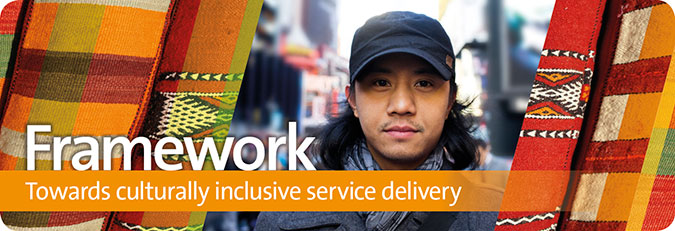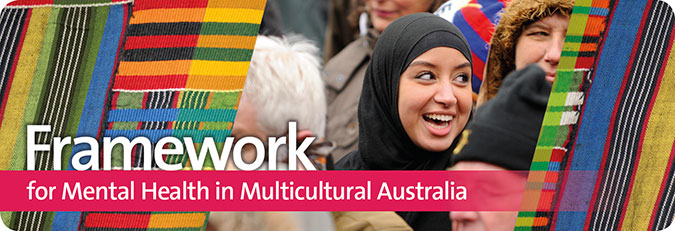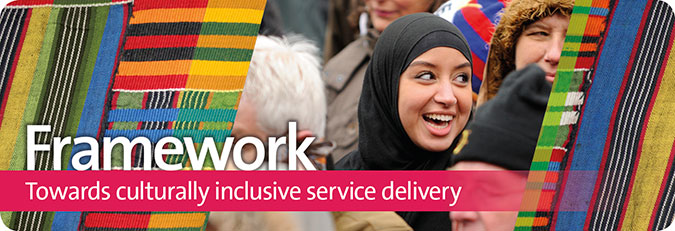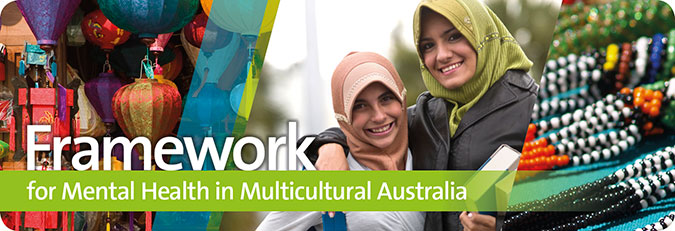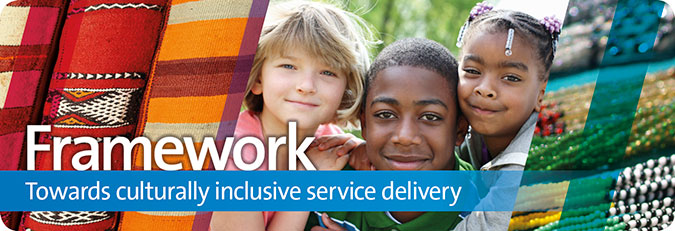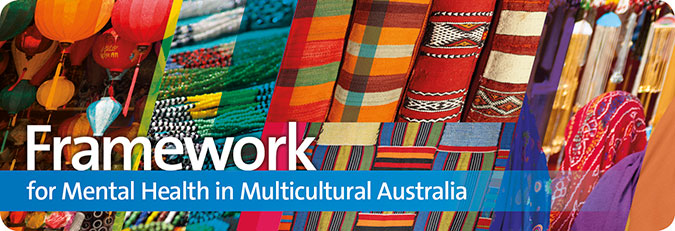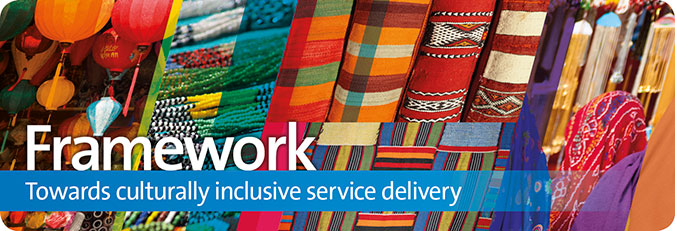Key concept 5
Recovery and cultural diversity
Mental health services play an important role in supporting culturally and linguistically diverse (CALD) consumers in their recovery by reducing impediments and barriers, and creating opportunities.
To assist CALD consumers on the recovery journey, mental health services need to understand that recovery and its principles are not universal concepts and as a result may present challenges for mental health workers and CALD consumers.
Core principles underpinning recovery oriented practice responsive to the needs of CALD consumers:
- Recovery is a collection of processes that occur within a web of relations including the individual, family and community and is contextualised by culture, language, oppression and privilege, history and social determinants of health.
- Responsiveness to people from CALD backgrounds requires organisational capacity at different levels: systemic, organisational and practice.
- Recognising the diverse ways in which the concepts of mental health, mental illness and recovery may be understood by people from CALD backgrounds requires an awareness of the impact of the practitioner’s own ethnocultural identity, as well as that of the organisation and service system.
The National Standards for Mental Health Services 2010 and Australia’s National Framework for Recovery-Oriented Mental Health Services recognise that recovery is defined by the individual with the mental illness. It emphasises that recovery is about gaining and retaining hope, understanding one’s abilities and disabilities, engaging in an active life, achieving personal autonomy and social identity, achieving meaning and purpose in life, and having a positive sense of self.
Because recovery models take a client-centred approach they can be very effective in improving the lives of people from CALD backgrounds. For some cultures though the idea being individually focused is counter intuitive particularly in more collectivist communities. In addition for some cultures the concept of recovery from an illness is not a distinct concept as health and wellbeing are often on a continuum with ill-health. Thus for some CALD consumers a focus on recovery may be an unfamiliar approach. Finally for some CALD consumers the concept that a health professional is guided by the views and opinions of the consumer is a foreign one, thus taking a pro-active approach in their own recovery may be uncomfortable or even difficult.
A cultural perspective on recovery
CALD communities hold beliefs about the cause and nature of mental illness that are different to the beliefs held by mental health services and workers. Similarly, CALD communities may also have alternative ways of understanding and explaining mental wellness, wellbeing, healing or recovery. In addition some cultures do not always distinguish between physical and mental health. Thus, culturally inclusive and responsive mental health services need to take a broader understanding of the concept of recovery and listen to, understand and engage with their CALD consumers’ alternative ideas about wellness.
Recovery traditionally tends to focus on the individual’s experience and is often a reflection of individualist values inherent in western cultures. For many CALD consumers the experience or ways of understanding or explaining recovery is more about concepts of overall wellbeing or wellness, rather than the process of recovery itself, or that one recovers from a particular illness. Thus recovery is simply part of the continuum of health and ill-health.
Holistic explanations of recovery are therefore more relevant, understandable and applicable when working with many CALD populations. A holistic explanation of recovery is seen as a restoration of balance, equilibrium and wholeness. Similarly, ideas about health and healing are related to harmony and cohesion, rather than individual mastery and control. For CALD consumers, recovery may encompass change in a range of domains not just change in mental health symptomatology. These could include family relationships, community participation, and fulfilment of culturally prescribed roles and responsibilities, especially those that relate to family, religion and community.
Family and community
Healing occurs not only by reducing the distress of the individual, but also creating improvements in the health and functionality of the family and support network. Restoring, maintaining and strengthening connections play a significant role in healing and recovery, linking individuals, families, social groups and communities. At the broader level, this connection can promote an important sense of belonging, which can reduce the isolation and loneliness sometimes experienced by CALD consumers, carers and communities in relation to experience of mental illness and involvement with mental health services.
Recovery oriented services working with CALD consumers need to also focus on the wider needs of the family and community; and not only the individual with the mental illness. The trauma of mental illness and interaction with mental health systems may be experienced by individuals and immediate family, extended family, friends and in some cases, entire communities. This may be particularly apparent in small, closely-knit communities, especially where there is significant stigma attached to mental illness. Communities with high levels of previous trauma, for example refugees, may be even more vulnerable.
Assisting families and communities in the recovery journey can have significant impacts on the individual with the mental illness and people at risk of developing a mental illness. Working with communities can also reduce the stigma associated with a mental illness and increase mental health literacy reducing delays in seeking treatment.
The socio-political context of recovery
Social, economic and political conditions and processes can have either an enabling or inhibiting influence on recovery. A social justice perspective of recovery articulates that healing cannot occur in an environment that allows for discrimination, social exclusion, and inequity. The positive influence of social inclusion, a sense of belonging and of being needed cannot be underestimated particularly for people from more collectivist cultures.
Discrimination is a major barrier to recovery as it can limit people’s access to treatment, support services, opportunities and the broader community. Therefore stopping discrimination by actively challenging stigma and championing respect, rights and equality for all is as important as providing treatment. The mental health sector is well positioned to develop an advocacy role in redressing discrimination, social exclusion and inequity for CALD consumers, carers and their families. Advocacy can bring about lasting, tangible and positive changes to the lives of CALD consumers, their families and communities.
Useful readings
Idsa, D. (2007). Cultural competency and recovery within diverse populations, Psychiatric Rehabilitation Journal, 31 (1), 49.
Jacobson, N. & Farah, D. (2012). Recovery through the lens of cultural diversity, Psychiatric Rehabilitation Journal, 35 (4), 333.
New Zealand Government, Mental Health Commission (2001) Recovery competencies for New Zealand mental health workers, 1-7 and 87-91.
O’Hagan, M., (2004). Recovery in New Zealand: Lessons for Australia? The Australian e-Journal for the Advancement of Mental Health, 3 (1), 5-7.
 Key Concept 5 - Recovery and cultural diversity (209 KB)
Key Concept 5 - Recovery and cultural diversity (209 KB)
Previous Page


